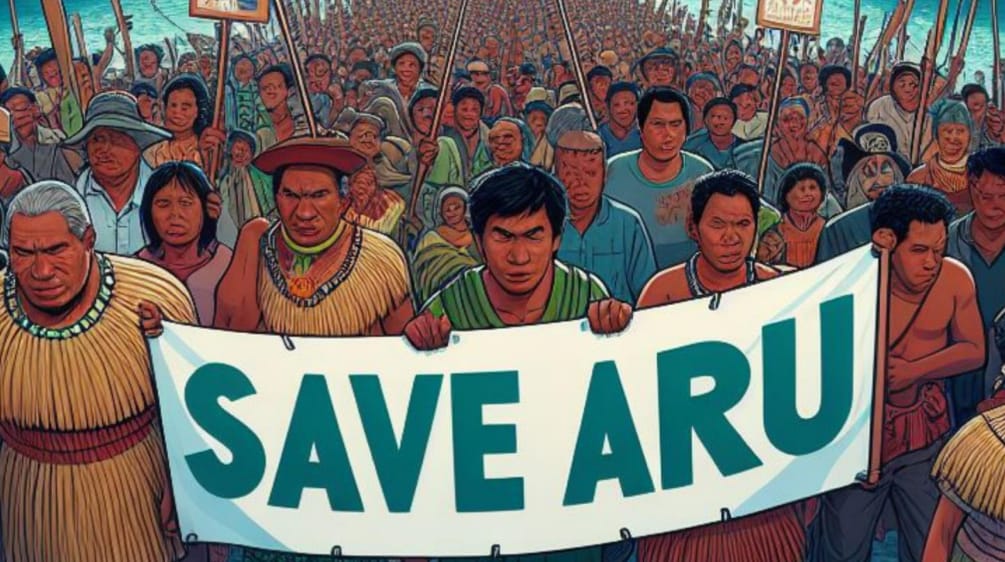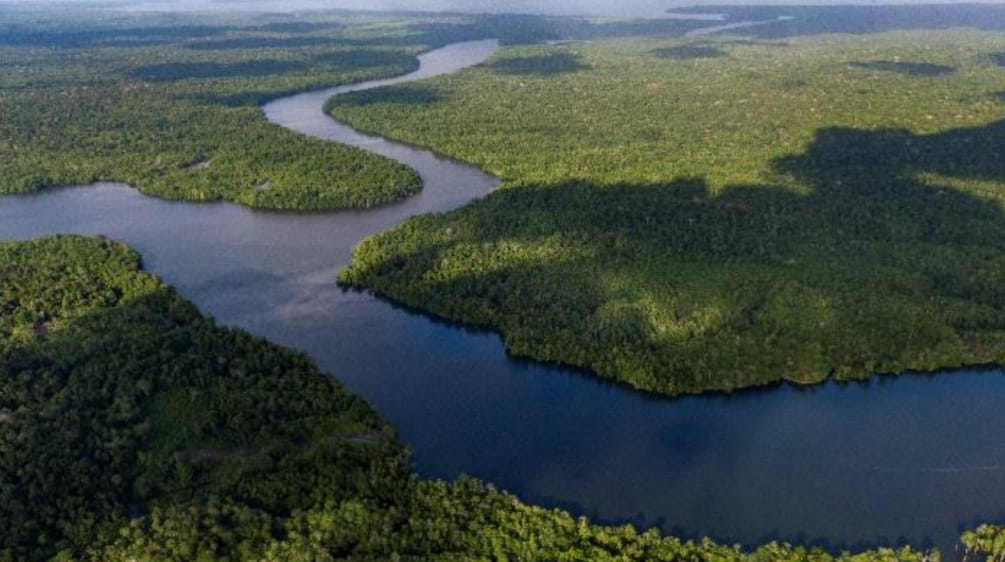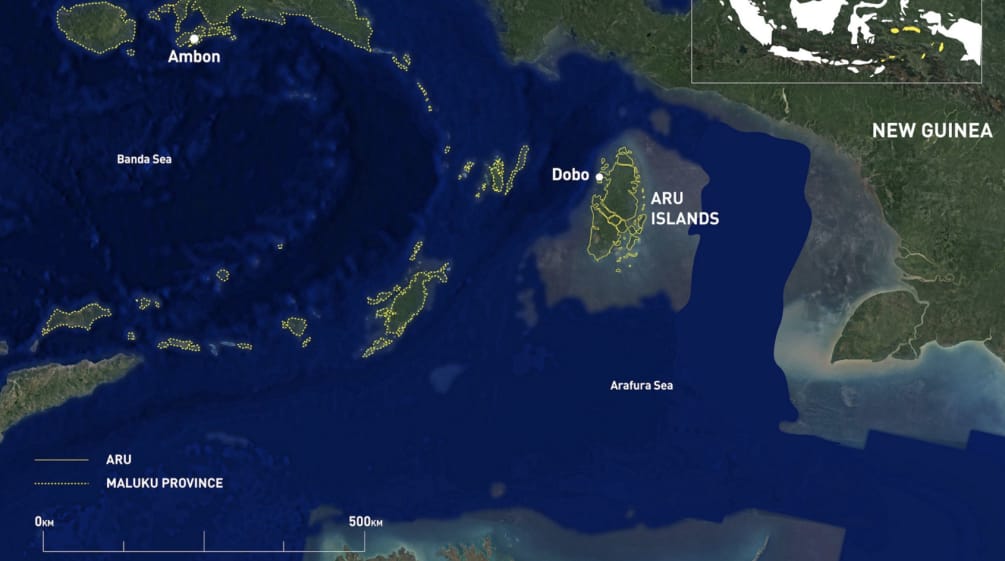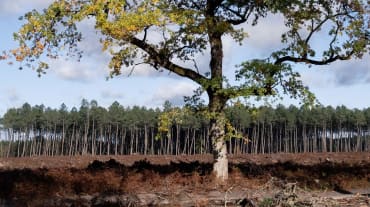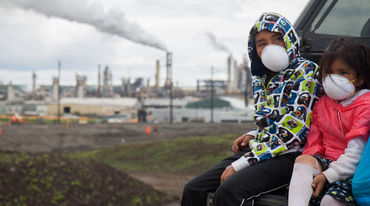Indonesia: Carbon trading scheme threatens Aru Islands
Dec 15, 2023
Carbon traders want to exploit one of the last intact rainforests on the Aru Islands between Australia and New Guinea. The #SaveAru coalition, of which Rainforest Rescue is a member, is calling on the Indonesian Ministry of Environment and Forestry to stop the licensing process.
The Melchor Group intends to establish a carbon trading scheme called the Cendrawasih Aru Project on nearly 600,000 hectares of the Aru Islands. The timber company PT Wana Sejahtera Abadi also has a permit for 56,000 hectares. Local communities and the #SaveAru movement are alarmed.
--------- >>> Statement from the #SaveAru coalition (Indonesian and English)
This is the fourth wave of attacks on the forests of the Aru Islands in the last thirty years. So far, the islanders have successfully fended them off. In 2013, the #SaveAru movement gained strength when it resisted a plan to convert three-quarters of the land into sugar cane monocultures. And in 2018, it succeeded in stopping the plans of the coal company Jhonlin to raise cattle on 65,000 hectares.
In 2022, representatives of the Melchor Group came to the islands, ostensibly to farm crabs and cultivate seaweed in the mangroves. The local people rejected these plans – they know since time immemorial that disturbing the fragile ecosystem has serious consequences.
The idea of preserving the forest and selling carbon credits may sound good at first, but it does not take numerous issues into account. The forests of the Aru Islands are not empty: They are inhabited by people who have developed a sophisticated and proven system for using and preserving their forests, which are completely dependent on rain due to the lack of fresh water sources.
Thanks to the Indigenous population's profound knowledge of this biodiverse and ecologically fragile region and their staunch resistance to the plundering of nature, 75 percent of the land area is still covered by rainforest and 17 percent by mangrove forests. This is unique in Southeast Asia.
An ill-conceived, money-driven project would ignore the ecological achievements of the Indigenous people of Aru. It would quickly destroy their system of interaction with nature, their culture and identity, and open the forest to speculators.
The plan also shows a lack of ecological awareness: The Aru Islands are unique from an ecological and geological point of view. The islands, which are mostly limestone, are separated only by narrow straits, giving the impression that they are a forested area crossed by rivers. In fact, there is very little fresh water. The plant and animal life is typically Austronesian: as in New Guinea, tree kangaroos and birds of paradise live there.
Read more about the ecology of the Aru forests and the threats they face in our background paper:
The 4th threat wave of forest in Aru Islands
From a legal and human rights perspective, Indonesia lacks essential foundations for leasing or concessioning forests for exploitation such as the recognition of human rights, Indigenous rights and land rights. Any deal on this basis would be unethical.
In the #SaveAru coalition statement (Indonesian and English), we call for concrete first steps in our joint letter to the Ministry of Forestry:
- Cease all operations and revoke PT Wana Sejahtera Abadi (forest utilization permits) in the Aru Islands Regency.
- Halt the licensing process for PBPH subsidiaries of the Melchor Group, specifically PT Bumi Lestari Internasional and PT Alam Subur Indonesia in the Aru Islands Regency.
- Conduct a thorough review of the policy for determining forest areas in Maluku Province, with a focus on the Aru Islands Regency.
- Perform an audit of natural resource-based permits and concessions in Maluku Province, particularly in the Aru Islands Regency, and impose strict sanctions, including permit revocation, for any proven violations of the law.
Illegal logging and wildlife trafficking by organized gangs is a growing problem. Our partners at Nature Friends Urai Uni document the theft of valuable merbau timber on an almost daily basis. They also observe numerous ships loaded with tropical timber, which, coming from the south of Papua, are presumably destined for the world market via Surabaya, Malaysia and China.
Melchor GroupThe Melchor Group consists of four major companies: Perisai Alam Sejahtera, Muller Karbon Kapital, Indonesian Oxygen Chain (ROXI) and Melchor Artha Lestari. Subsidiaries PT Bumi Lestari Internasional and PT Alam Subur Indonesia now have a gubernatorial recommendation for 119,000 hectares.











